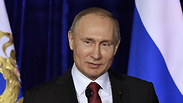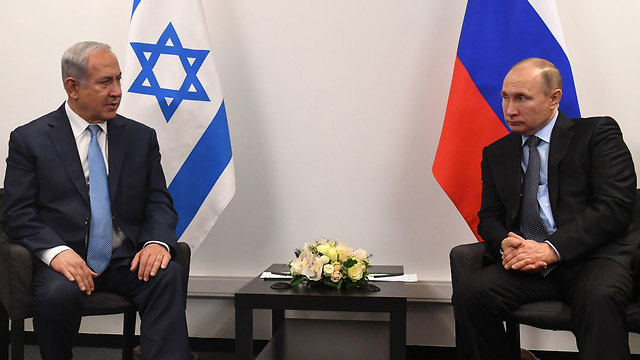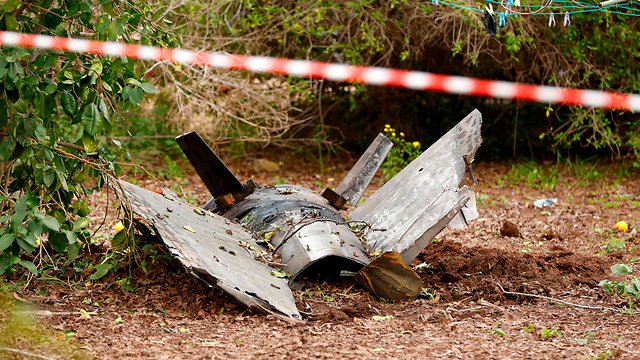
From Russia with disappointment
Op-ed: Our working assumption in the past few years, that the Russians will protect Israel’s interests in Syria, was all wrong; as far as the Kremlin is concerned, now is the best time for a regional war, which might serve its interests on two important strategic channels—oil and arms exports.
In light of the multiple apparently warm meetings between Prime Minister Benjamin Netanyahu and Russian President Vladimir Putin in recent months, we can definitely be disappointed by the Russian response, but we shouldn’t be surprised: Israel’s working assumption in the past few years, that Russia will protect Israeli interests in Syria, was all wrong. So urgently asking the Kremlin on Saturday morning to prevent an escalation in the region was like asking a pyromaniac to put out the fires he himself helped ignite.

Those who have their hopes pinned on the Russians to calm down the situation in the region are forgetting (or ignoring) the fact that Russia is the only one that may gain from a war in the Middle East. The Russian foreign policy in the Middle East is mainly inconsistent, which is why diplomats and researchers often refer to it as opportunist pragmatism. In other words, detecting and seizing every random potential opportunity to advance their own interests.
That’s exactly what should be keeping us all up at night. As far as the Russians are concerned, this is the optimal time for a regional war, which may serve their interests on two important strategic channels.
First, oil. The past week’s stock market drops dragged the price of oil down with them, as it lost more than 10 percent and fell under $60 per barrel. Since oil exports are the Russian economy’s lifeline, a flare-up in the Middle East would threaten the supply of global oil, raise tensions among investors, and thereby increase the demand and send the prices back up.
Second, arms exports. While the Syrians will likely use the images of a (US-made) Israeli F-16 fighter jet downed by a (Russian-made) Syrian anti-aircraft missile for propaganda purposes, the Russians might make commercial use of these images for marketing purposes. And this is something they need: In the past few years, the Russian weapon industry been experiencing a drop in demands due to growing competition from China, and well as losing its monopoly over important markets like India, Eastern Europe and Vietnam in favor of Western countries—including the United States and Israel. A regional war solves both problems for Moscow.
Israeli officials keep saying that the Russians are interested in “stability,” but stability is relative and, in this case, also misleading: The Americans, the Europeans, and recently the Chinese as well, are interested in regional stability to protect billions of dollars in civil investments and allow a cheap supply of oil. Because of the Russian economy’s different—and primitive—nature, the Russian capital invested in our region is mostly related to infrastructures and oil, and is therefore a lot less vulnerable.
We must remember a painful but important historical lesson: Russia doesn’t really care about the Middle East. Its vital strategic targets were and remain in Eastern Europe and along its endless borders in Asia. This means that unlike the fires close to home—in Ukraine and North Korea, for example—Russia won’t rush to put out the fire in the Middle East, especially when its allies and clients are the ones who ignited this fire.
Dr. Yoav Fromer teaches politics and history at Tel Aviv University.











